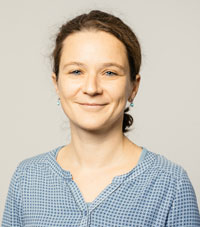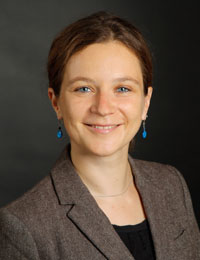International Conference, University of Bremen, September 13-15 2017Organizers
Dr. Teresa Huhle & Prof. Dr. Delia Gonzalez de Reufels, Latin American History (History Department, Faculty 8), University of Bremen, in cooperation with the SOCIUM Research Center on Inequality and Social Policy, University of Bremen
The conference aims to bring together an international group of junior and senior scholars from history and related fields who are working on the history of social policies and the welfare state in the Global South from a transnational, entangled or global history perspective.
Together, we would like to discuss current trends of research as well as map out open questions of the field. During the last ten years, the historiography on social policies and the welfare state has started to participate in the transnational turn. However, the exchanges of knowledge, ideas and institutions have been predominantly studied among countries and regions of the Global North, also highlighting transfers from north to south. The way European powers have intervened within their colonial domains in Africa and Asia in social policy issues can serve as an example.
We attempt to broaden these perspectives on the directions of transfer and communication. We are especially interested in research that focuses on exchanges and processes of transfer which have worked in the south-south and south-north direction. These can include questions on the effects that colonial contestations of welfare measures had on the policies in the respective ¡¥motherlands¡¦, on regional exchanges during moments of crisis (e.g. in Latin America during the Great Depression) or on how delegates from the Global South shaped the social policies of international bodies like the International Labor Organization (ILO) or the Office of the United Nations High Commissioner for Human Rights (UNHCR).
In this context, we consider it promising to use a broad concept of the welfare state and its policies, including not only the classical domains of labor security and public health, but also encompassing fields like nutrition, reproduction, education, recreation and other emerging research perspectives.
The integration of a cultural history perspective will further enable us to look at representations and constructions of social problems in diverse spatial configurations. We consider these as directly intertwined with the policies directed at them and want to highlight that 'welfare problems' and their underlying social and moral assumptions traveled just as much.
We are furthermore particularly interested in discussing the role of policies and welfare measures in the processes of nation building, which both on an institutional and an identity level must be conceptualized as a global phenomena and transnational endeavor. At the same time, we consider it important to look at the formation and exchange of social policy ideas and institutions beyond the national level, highlighting both exchanges on the communal and provincial level and within regional cooperation and international organizations.
In sum, we are particularly interested in case studies which fit into this general framework. We invited contributions which pay particular attention to the following methodological and thematic aspects:
-
Transnational networks and actors who promoted and conceptualized social policies and their mobility, especially beyond the realm of policy makers and experts, highlighting the role of social movements, labor unions and health activists among others
-
The development and transfer of visual and graphic depictions of social problems and social policies
-
The gendered dimensions of social policies and political demands
-
Colonial and imperial social policies and their possible afterlives during nationhood
-
Cross-border struggles for the recognition of social rights
The discussion will be stimulated by keynote lectures, including Prof. Dr. Christoph Conrad (University of Geneva).
If you wish to participate in the conference, please send in an abstract (maximum length 300 words) and a short CV by October 31st, 2016 to teresa.huhle@uni-bremen.de.
Notifications of acceptance will be sent out by mid-November 2016. A small travel allowance may be granted but funds are limited.
For further information please contact: teresa.huhle@uni-bremen.de
Download: Call for Papers
 Prof. Dr. Carina Schmitt
Prof. Dr. Carina Schmitt













